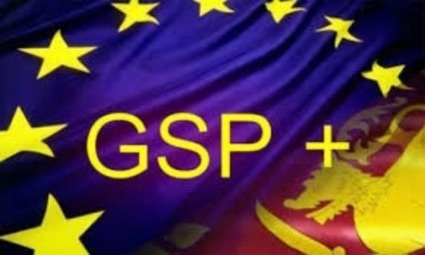
The European tax concession GSP+ was withdrawn from Sri Lanka by the European Parliament during the regime of Mahinda Rajapaksa. That regime is responsible for the deaths of tens of thousands of Tamil-speaking people in Sri Lanka.
Tamil Solidarity and many human rights campaigners welcomed this sanction while recognising that much more could have done to prevent the Rajapaksa regime’s attacks on democratic rights and to bring it to justice for the war crimes it committed.
Although the old dictatorial regime was defeated in the subsequent election, the Rajapaksa family continues to enjoy significant support in the country, particularly in the south.
The newly elected government came to power with various promises but has not delivered them. Now massive discontent exists among the Sinhala, Tamil, and Muslim communities in the country against the policies of the current government.
Rajapaksa and his supporters are using the opportunity again to whip up communalism. This they do through anti-imperialist rhetoric and claims of protection of “sovereignty”. They propagate the idea among the suffering poor and among workers that the current government is “selling the country” to the west. In these circumstances it would be wrong to lift the sanction which will only play into the hands of Rajapaksa propaganda.
See links to news items below.
It must be noted that the new government has made no progress in relation to improving human rights. Many human rights organisations have reported on the on-going undemocratic measures. The current coalition government claimed that it will change the Prevention of Terrorism Act (PTA), for example. Despite proposing a sort of “name change” to this legislation, this government has not yet come out with any real proposal for change. Nor has the promise of political rights for the Tamil-speaking people through constitutional changes materialised. The general mood among the people is one of despair.
The people’s trust in institutions such as the United Nations and the European Union is at an all-time low. This is due to the fact that these institutions seem to have given full support to the current government despite the complete absence of solutions to their problems or change to the situation. Lifting the GSP+ sanction will further harden this opinion.
It is recognised that the previous regime provided misleading information during the time when the EU made the GSP+ sanction. They painted a picture of deteriorating conditions. Now the old regime claims that the GSP+ is irrelevant. But the workers, particularly in the garment industry, continue to work in harsh conditions. There is little evidence that the government of Sri Lanka will use the GSP+ to benefit workers. The companies that benefit from the GSP+ will not offer anything meaningful to the workers, such as a wage rise, etc. There is nothing on offer from the government or these companies in terms of improving workers’ conditions. In addition there is no evidence available that the GSP+ will benefit anyone operating outside of the Free Trade Zones.
Tamil Solidarity believes that no benefit will go beyond the inner circle made up of the heads of governments and the southern region. The government of Sri Lanka has not provided comprehensive details of how the GSP+ will be used to benefit workers, and without ethnic prejudice. It must be noted here that in the past Sunil Wijesinha, Director of Dankotuwa Porcelain Ltd, one of the companies cited by the government as affected by the GSP+ removal, has accused the government of corruption (Ref 13).
Tamil Solidarity demands:
• Tamil Solidarity demands that the Sri Lankan government publishes a comprehensive plan of how it will use the GSP+ to benefit the workers across the country.
• The EU must not lift the sanction. Instead it should demand the Sri Lankan government provides a detailed account, including the details of what are the conditions that were laid out by the EU when the sanction was imposed.
• New conditions and a strict timetable should be given to the Sri Lankan government to meet the democratic requirements.
• IF the EU makes the decision to lift the sanction for whatever reason, we request that the Tamil-speaking people, particularly workers, should be given a chance to raise their opinion about this. Tamil Solidarity is working among Tamil-speaking people in the diaspora building campaigns for democratic and human rights and is an inclusive campaign.
Tamil Solidarity works with Sinhala and Muslim human rights campaigners as well as human rights campaigners in Europe. We request that we should be given at least the opportunity to register our voice with regard to this matter.
